InAsia
Insights and Analysis
In Bangladesh, Preserving Indigenous Culture through Storytelling
November 15, 2023
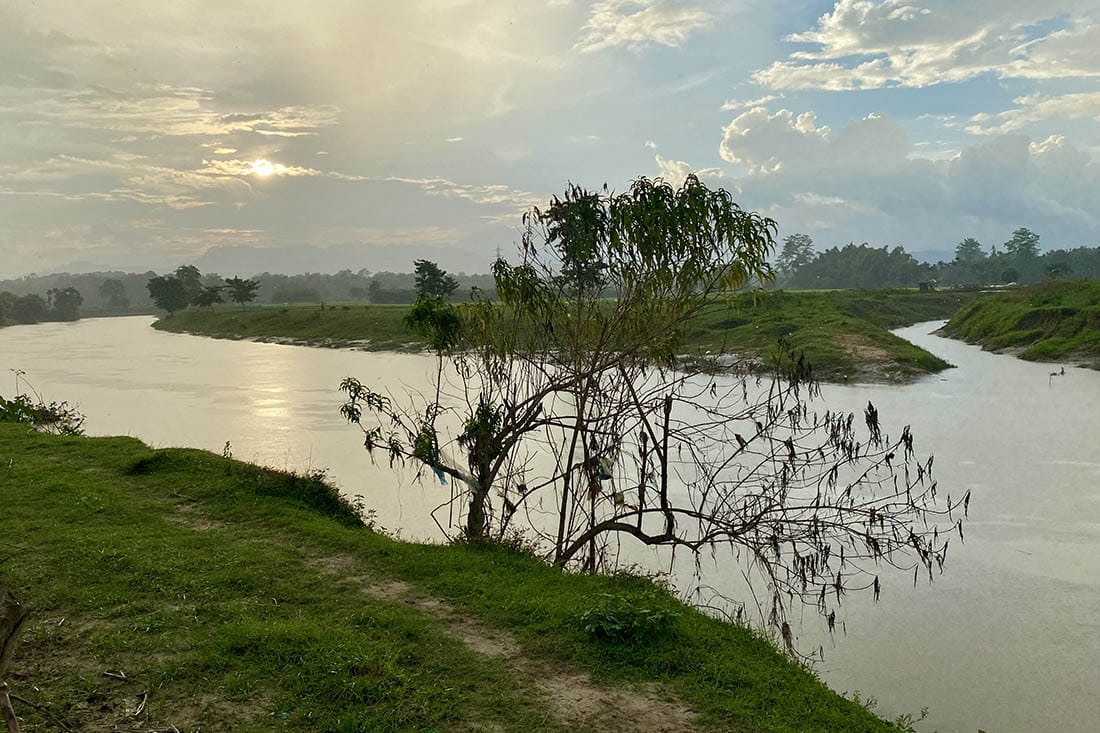
The Khagrachari District of the Chittagong Hill Tracts (Photo: Sathirtha Dewan / The Asia Foundation)
The population of Bangladesh includes more than 54 Indigenous peoples, among them the Chakma, Marma, Tripura, Tanchangya, Chak, Pankhua, Mro, Bawm, Lushai, Khyang, and Khumi. Approximately 80 percent of this Indigenous population, which numbers close to a million individuals, live in the flatland districts of the north and southeast of the country, while the rest reside in the Chittagong Hill Tracts.
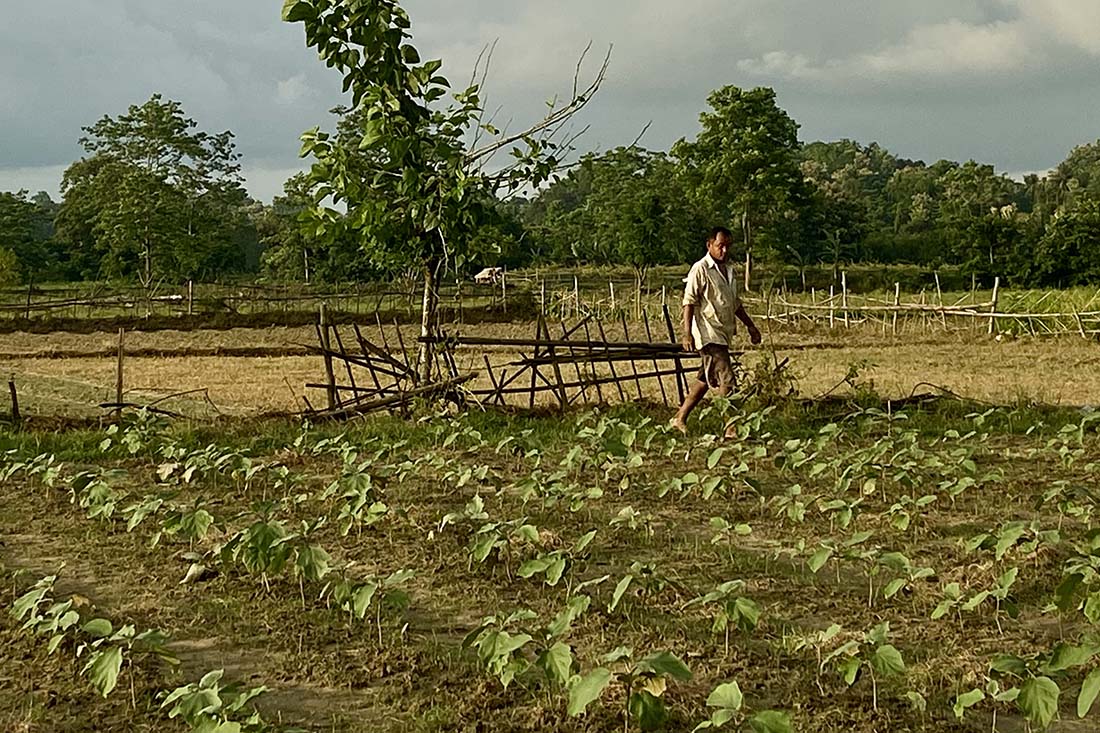
Farming in Bandarban (Sathirtha Dewan). (Photo: Sathirtha Dewan / The Asia Foundation)
Along with the official language of Bengali, the Indigenous peoples of Bangladesh speak at least 35 distinct languages. These languages, with their own alphabets and intonations, are part of the country’s rich cultural heritage, but many are in decline under pressure from the dominant culture.
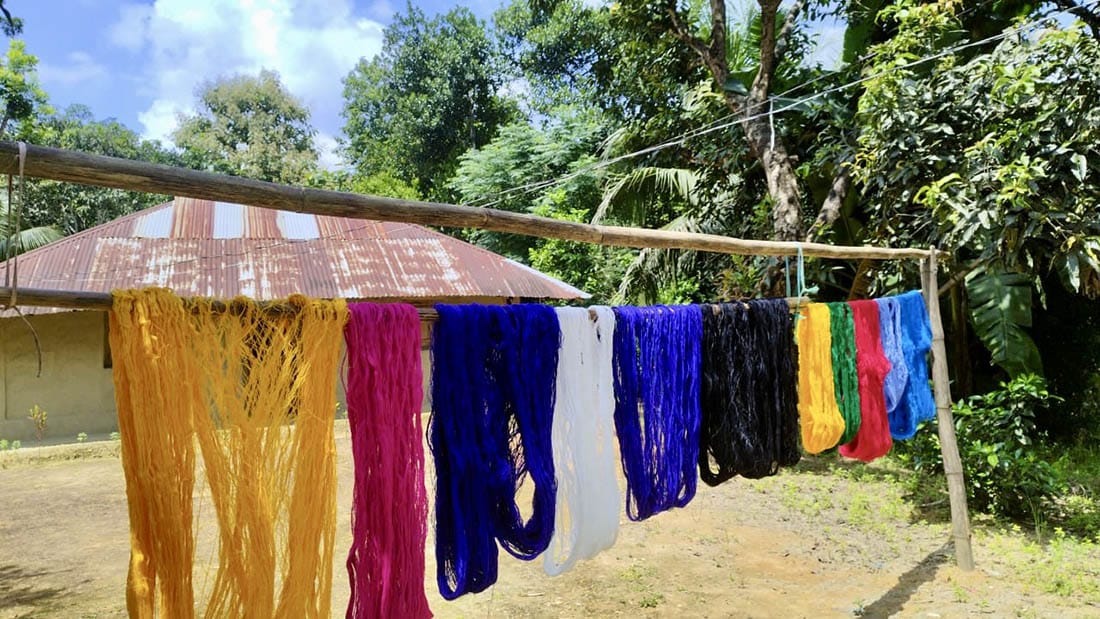
Drying yarn for weaving. (Photo: Joseph Chakma and Praban Chakma / The Asia Foundation)
The disappearance of Indigenous languages, known as “language death,” is a widespread issue affecting not only Bangladesh but also the world. According to the United Nations, 96 percent of the world’s approximately 6,700 languages are spoken by just 3 percent of the world’s population. Although indigenous peoples make up less than 6 percent of the global population, they speak more than 4,000 of the world’s languages. Many of these languages are now considered endangered. The UN estimates that at least one world language dies out every two weeks, and most could become extinct by the year 2100.
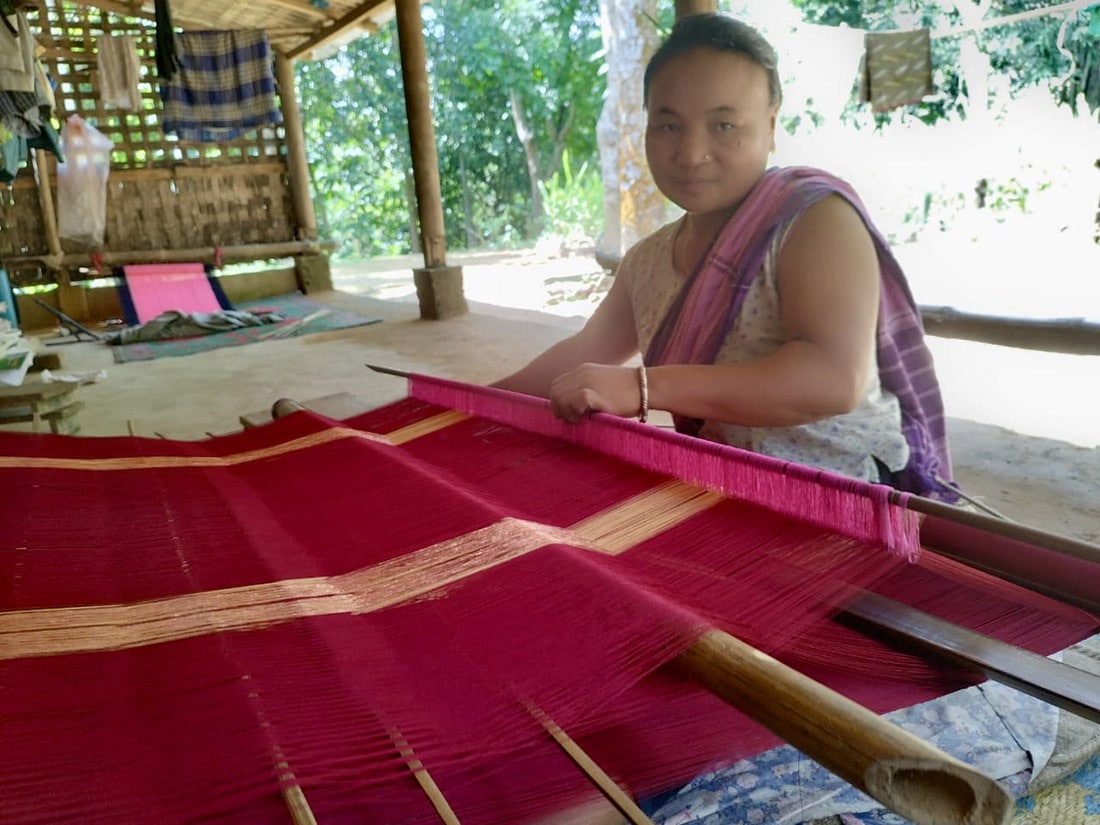
Weaving cloth for clothing. (Photo: The Asia Foundation)
The decline of indigenous languages in Bangladesh has many causes, including sociopolitical and cultural factors such as a growing preference for Bengali and lack of attention from planners and policymakers. Children belonging to Indigenous linguistic communities often have no opportunity to use their mother tongue in school and must learn Bengali to pursue their education.
The government has adopted policies to protect indigenous languages, but these initiatives have had mixed success. Measures have been taken to include texts in Indigenous languages and teachers from Indigenous groups ??at the preschool level, and the government has distributed books to preschools in five Indigenous languages: Chakma, Garo, Kokborok, Marma, and Sadri. But qualified teachers who speak these languages are still in short supply, and no plan has yet been offered for mother-tongue education at higher levels.
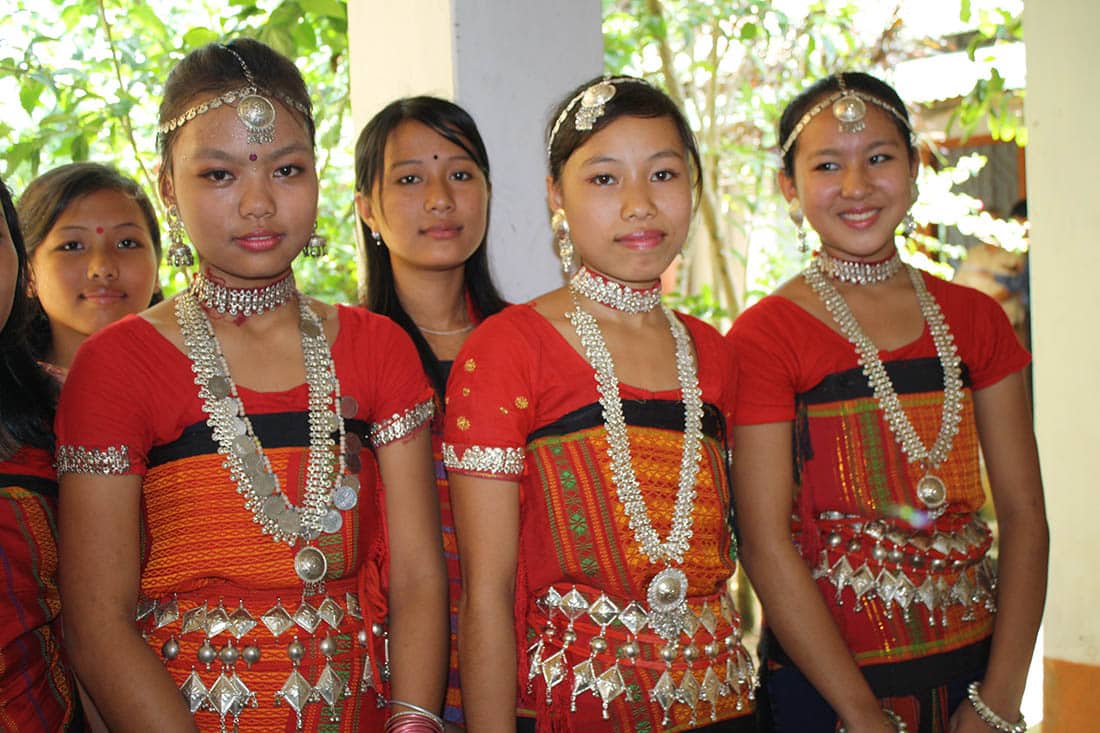
Chakma girls in their traditional dress. (Photo: Sukla Dey / The Asia Foundation)
Hooked on Peace
In 2022, UNESCO, in collaboration with The Asia Foundation and the Asia Indigenous Peoples Pact, launched the project Hooked on Peace: Promoting Positive Peace through Indigenous and Local Language Digital Storytelling. With support from the Japanese Funds-in-Trust, Hooked on Peace will use digital storytelling in the Indigenous languages of Asia to promote youth development and intergenerational dialogue, mother-tongue education, digital literacy, gender equality, and preservation of Indigenous heritage and practices.
In Bangladesh, Hooked on Peace will bring young and old together in two ethnic communities to share and document traditional narratives. The stories will be developed by young Indigenous people through dialogue within their own ethnic communities, and will then become the basis for a series of digital publications, in Indigenous languages, that promote traditional practices and solutions for peacebuilding and sustainability.

Hooked on Peace workshop in Bangladesh with UNESCO and The Asia Foundation. (Photo: The Asia Foundation)
The Asia Foundation has already conducted a three-day training for 20 Chakma and Tripura young people to equip them with the skills to collect local stories. Joseph Chakma, a presenter at the workshop, is a scholar at Martin Luther Christian University exploring how acculturation shapes the career choices of Chakma youth in the Chittagong Hill Tracts:
Hooked on Peace stands as an exceptional initiative to empower indigenous youth, fostering a platform for them to express their voices while simultaneously safeguarding their invaluable cultural heritage through the art of storytelling.
Another program participant, Jahangirnagar University student Ananto Tripura grew up in one of the remotest areas of the Chittagong Hill Tracts.
Hooked on Peace is an excellent project to restore the color and beauty of my faded ethnic community by telling my own story. Heartfelt gratitude to The Asia Foundation for this wonderful initiative.
The primary objective of the training was to encourage participants to think about the meaning of peacebuilding, gender equality, and sustainability within and beyond their own Indigenous communities. Participants received guidance on effective interviewing techniques and basic methods for extracting meaning and themes from qualitative data— “finding a story.” They also explored the ethical dimensions of research in indigenous communities.
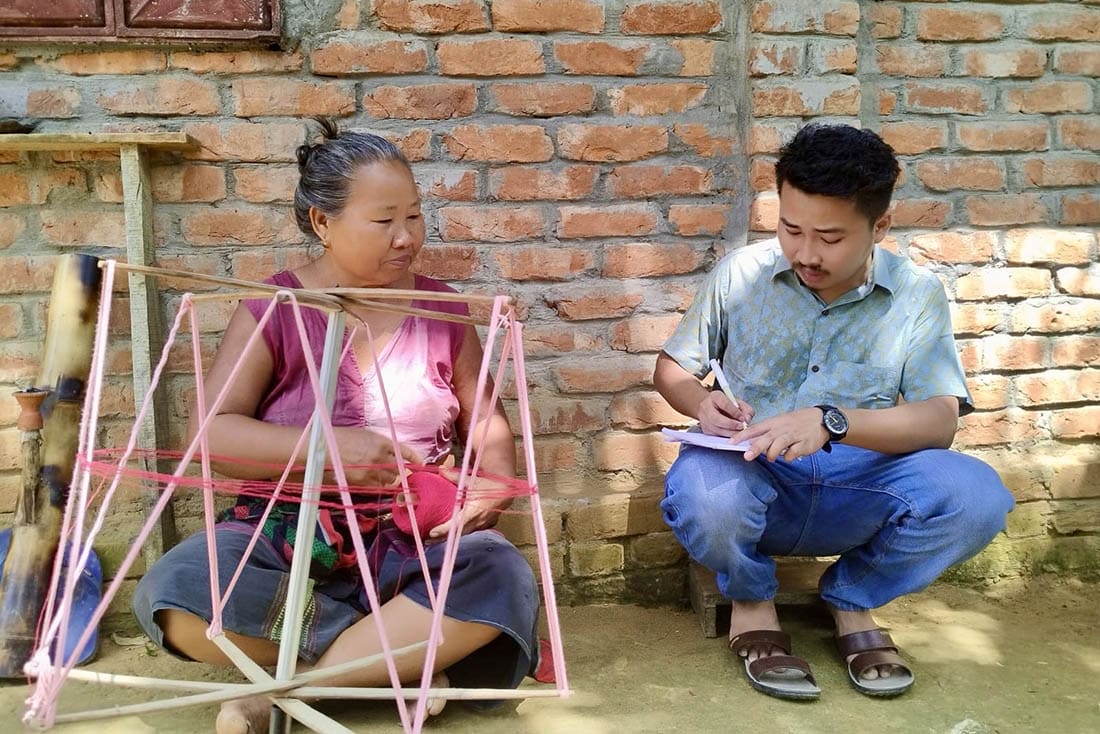
Conducting an interview in Kangrachari. (Photo: The Asia Foundation)
Workshop participant Twisa Tripura is a university undergraduate and a program officer with Khagrapur Mahila Kalyan Samity, an indigenous development and women’s empowerment NGO in Khagrachari.
I am so delighted to be a part of the Hooked on Peace project, as I always endeavor to contribute to my community. Being an Indigenous youth changemaker, I feel great responsibility to protect and promote our traditional culture and document all the untold stories for our future generations.
Atina Chakma is a workshop participant from Khagrachari, where she was a presenter for Bangladesh Television:
I feel preserving cultural stories is mandatory. This is an excellent initiative to be more concerned and responsible to preserve Indigenous non-tangible culture by utilizing my inner writing capability. I am proud to become a part in persevering our cultural stories. My heartfelt gratitude to The Asia Foundation for this amazing initiative.
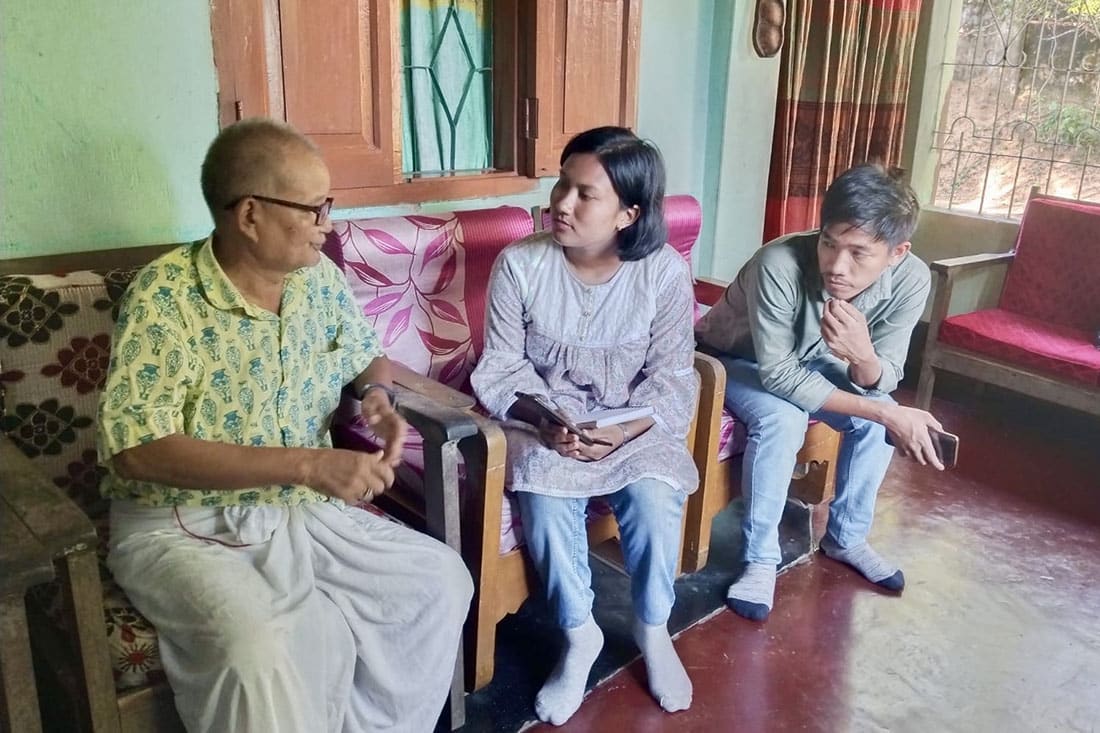
Interviewing a respected elder in Khagrachari, Bangladesh. (Photo: The Asia Foundation)
When the young interviewers have finished their fieldwork, The Asia Foundation will provide training on story editing and establish a review process to finish the stories. These will be released to the public on February 21, 2024, in celebration of International Mother Language Day.
UNESCO’s priority is to preserve and share these aspects of humanity. The stories collected by Hooked on Peace will be published on UNESCO and Asia Foundation social media platforms, and the Foundation will publish them in a series of children’s books via the Foundation’s digital platform for children, Let’s Read.
We believe that Hooked on Peace will help preserve Bangladesh’s rich Indigenous culture and the knowledge and wisdom of older generations.
Sukla Dey is senior program manager and Nusrat Hossain and Labiba Najeeba are consultants for Let’s Read in Bangladesh. They can be reached at [email protected], [email protected], and [email protected], respectively. The views and opinions expressed here are those of the authors, not those of The Asia Foundation.
About our blog, InAsia
InAsia is posted and distributed every other Wednesday evening, Pacific Time. If you have any questions, please send an email to [email protected].
Contact
For questions about InAsia, or for our cross-post and re-use policy, please send an email to [email protected].The Asia Foundation
465 California St., 9th Floor
San Francisco, CA 94104
The Latest Across Asia
News
April 25, 2024
Program Snapshot
April 18, 2024

2024 Lotus Leadership Awards
The Lotus Leadership Awards recognize contributions towards gender equality in Asia and the Pacific


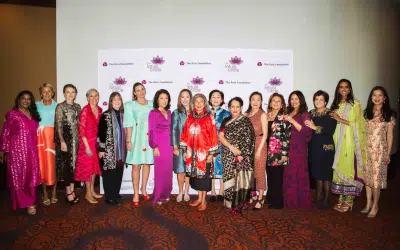
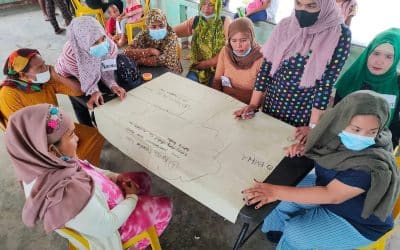
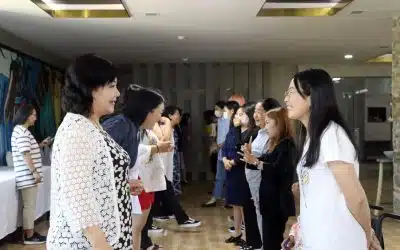


0 Comments